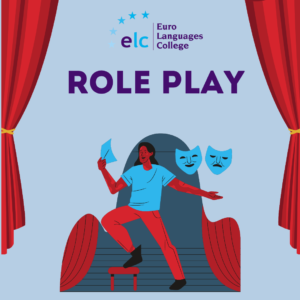We know the German oral exam can bring so much nerves to students. In this blog, we’ll look into a comprehensive guide of effective tips and strategies to help you excel in your German oral examination and have a confident and successful performance! Let’s embark on this language learning journey and unlock the secrets to acing your German oral exam.
The German oral exam is a bit different than the the French and Spanish oral exams, and of course you must prepare for it differently. The German oral exam lasts approximately 15 minutes. There is an equal division of time between each of the three sections; meaning that the ‘General Conversation’ section lasts 5 minutes, the ‘Picture Sequences’/’Project’ section lasts 5 minutes and the ‘Role Play’ section lasts 5 minutes. The entire exam is worth 25% for Higher Level students and 20% for Ordinary Level students.
The total amount of marks for the exam is 100. This is broken down in the following way:
- General Conversation: 40 marks
- Picture Sequence/Project: 30 marks
- Role Play: 30 marks
General Conversation
When you enter the exam, the examiner will typically ask you the following:
1. Wie heißen Sie? : What is your name?
2. Wie ist Ihre Prüfungsnummer? : What is your examination number?
3. Können Sie hier bitte unterschreiben? : Can you please sign here? (You must sign the attendance sheet)
Usually, once the attendance sheet has been signed, the General Conversation section of the exam begins. The most important topics to prepare are: Family, hobbies, school, future plans, work, where you live, learning German and speaking in past tense.
1. Family:
Erzählen Sie mir über Ihre Familie: Tell me about your family.
Haben Sie Geschwister? : Do you have siblings?
Wer ist der/die Älteste/Jüngste?: Who is the oldest/youngest?
Verstehen Sie sich gut mit Ihrer Familie?: Do you get on well with your family?


2. Hobbies:
Was machen Sie in Ihrer Freizeit? : What do you do in your free time?
Treiben Sie Sport? : Do you play sport?
Sehen Sie gern fern? : Do you like watching TV?
Was machen Sie am Wochenende? : What do you do at the weekend?
3. School:
Beschreiben Sie Ihre Schule: Describe your school.
Welche Einrichtung gibt es hier? : Which facilities are here?
Wie finden Sie die Schule? : How do you find school?
Welche Fächer lernen Sie? : Which subjects do you study?
Was ist Ihr Lieblingsfach? : What is your favourite subject?
Beschreiben Sie Ihre Uniform: Describe your uniform.
6. Where you live:
Wo wohnen Sie? : Where do you live?
Wohnen Sie gern dort? : Do you like living there?
7. German/Learning German:
Was machen Sie im Deutschunterricht? : What do you do in German class?
Wie finden Sie Deutsch? : How do you find German?
Waren Sie schon in Deutschland? : Have you ever been to Germany?
4. Future Plans:
Was möchten Sie nach dem Abitur machen? : What would you like to do after the Leaving Cert?
5. Work/Part-time job:
Haben Sie einen Nebenjob? : Do you have a part-time job?
8. Past Tense:
Was haben Sie letztes Wochenende gemacht? : What did you do last weekend?
Was haben Sie gestern gemacht? : What did you do yesterday?
Wie haben Sie Ihren letzten Geburtstag gefeiert? : How did you celebrate you last birthday?
Was haben Sie letzten Sommer gemacht? : What did you do last summer?
Picture Sequences/Project

The second part of the exam is the Picture Sequence or Project option. Some students will have prepared three picture stories and some students will have prepared a project on a topic of their choice. For both options the marks are broken down as follows:
-Narration of picture story or project: 10 marks
-Explanation and Future Projection questions: 10 marks
-Opinion on Issue questions: 10 marks
Picture Sequences
Here is a rundown of preparation required for the Picture Sequence option:
You must prepare three out of five Picture Stories. The picture stories are available on www.examinations.ie.
1. Handy Mobbing
2. Chancen durch Deutsch
3. Die Abi-Tour
4. Die Geburtstagüberraschung
5. Mehr WIndkraft: ja oder nein?
The examiner will first ask which three picture stories you have prepared. He/She will then take those three picture stories and place them face down on the table. You will then choose one at random. You will then have 30 seconds to gather your thoughts and when prompted by the examiner you will begin narrating the story. It is important to keep your narration clear and simple, allocating the same amount of time to each of the five/six/seven pictures. Remember to avoid describing the items/people in the picture. (That can be reserved for the questions afterwards) You are telling a story, so keep that in mind.
Once you have narrated the story, the examiner will ask you explanation and future projection questions. The examiner will usually ask you to describe an picture in more detail. You should have a short piece prepared on how you think the story continues.
Usually the examiner will ask: Wie geht die Geschichte weiter? : How does the story continue?
The third part is ‘Opinion on Issue’ questions, where the examiner will ask you a few questions related to the topic of the picture story. Examples of questions for each picture story:
1. Handy Mobbing:
Ist Handy Mobbing heutzutage ein großes Problem? : Is Cyber bulling nowadays a big problem?
Haben Sie ein Handy? Wofür benutzt du es? Do you have a phone? What do you use it for?
2. Chancen durch Deutsch:
Ist es wichtig eine Fremdsprache zu lernen? Warum? : Is it important to learn a foreign language? Why?
Möchten Sie in Deutschland leben/arbeiten? : Would you like to live/work in Germany?
3. Die Abi-Tour:
Ist so eine Abi-Tour unter irischen Schülern beliebt? : Is such a trip popular among Irish students?
Wohin möchten Sie auf eine Abit-Tour fahren? : Where would you like to travel on an after school trip?
4. Die Geburtstagüberraschung:
Wie finden Sie Tätowierungen? : How do you find tattoos?
Was kann man in Irland mit achtzehn Jahren machen? : What can one do in Ireland at the age of eighteen.
5. Mehr Windkraft: ja oder nein?
Was machen Sie, um umweltfreundlich zu sein? : What do you do to be environmentally-friendly?
Ist Windenergie eine gute Idee? : Is wind energy a good idea?
Project
Here is a rundown of preparation required for the Project option:
You must present your project in any way you choose. Most students choose a poster or a scrapbook. This will be given to the examiner and the examiner can look through it. You will have 30 seconds to gather your thoughts and when prompted by the examiner, you may begin your narration of your project. Your narration should be clear, simple and easy to follow. It should not exceed two minutes.
After your narration, you will be asked a few further clarification questions based on your presentation and narration.
Finally, you will be asked a few ‘Opinion on Issue’ questions. These will be questions based on the topic you chose for your exam. Example: If you chose to do your project on a German footballer, you would possibly be asked if you play sport, if Germany have a good football team, if footballers earn too much money etc.
Role Play
The final section of the exam in the Role Play. For this section you must prepare three out of five role plays. These role plays are all available on www.examinations.ie.
There are 20 marks for content. These can be very clearly broken down to one mark for each prompt provided. The final 10 marks are for your expression. It is very important to keep your role play conversation clear and simple; avoid over-flowery language. The main goal is communication and grammatical correctness.

The German oral exam is very clearly structured and with lots of practice and preparation, you can do very well.
We hope these tips come in handy for your German oral exam! And if you’re looking for even more guidance and preparation for the German Leaving Cert, our German summer courses are an excellent opportunity for you to improve. And remember, practice makes perfect!

